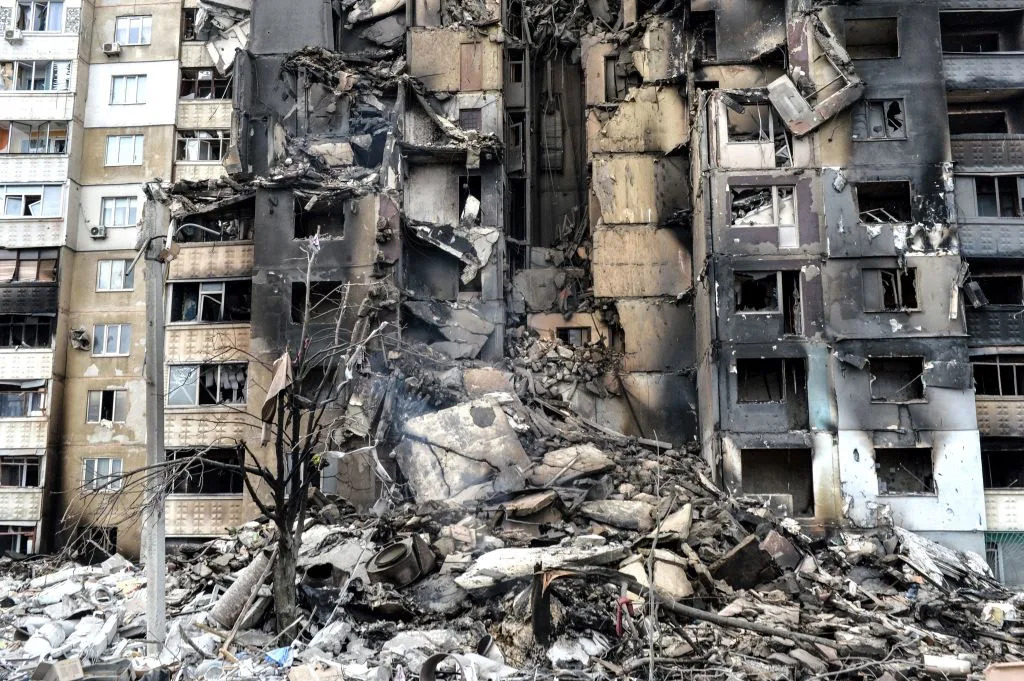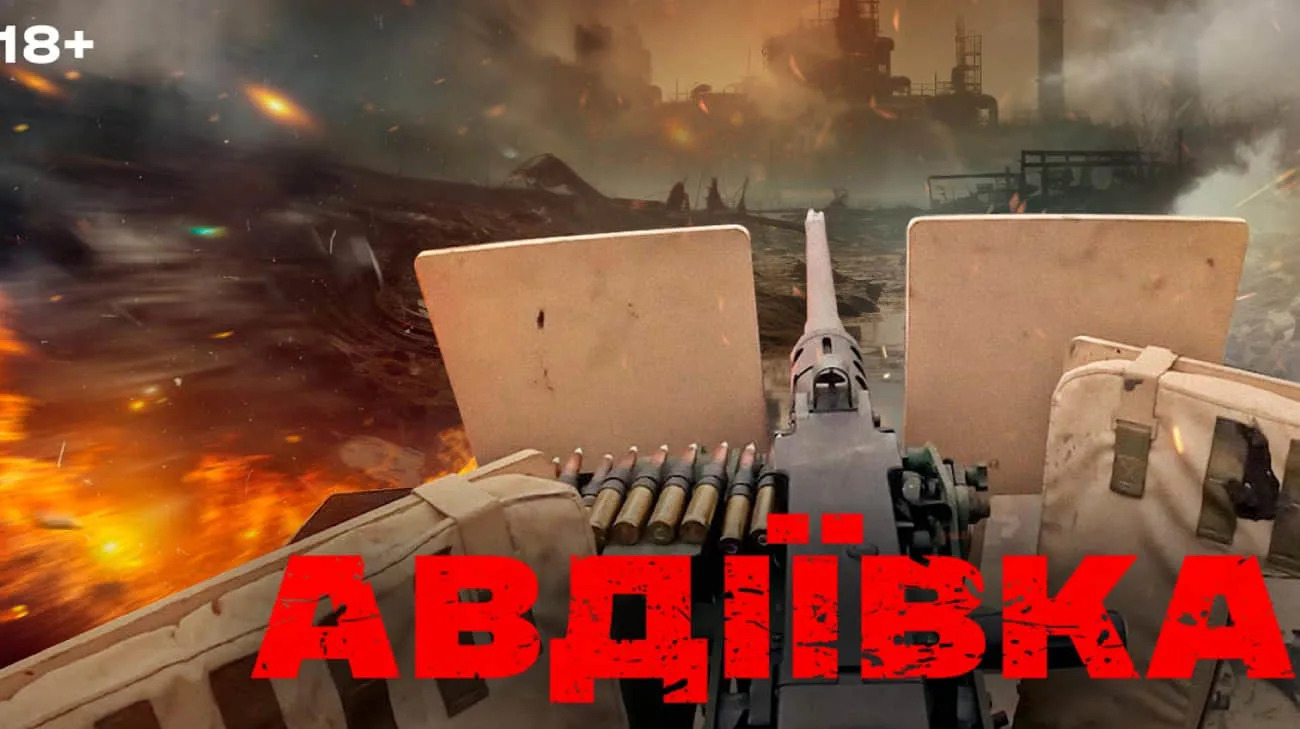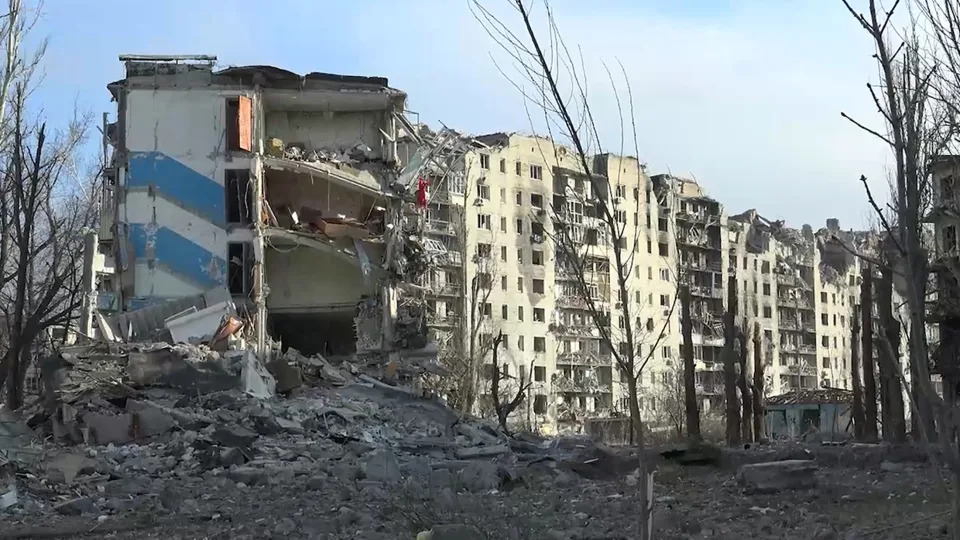Ukraine Can't Win the War

The long-awaited counteroffensive last year failed. Russia has recaptured Avdiivka, its biggest war gain in nine months. President Volodymyr Zelensky has been forced to quietly acknowledge the new military reality. The Biden Administration’s strategy is now to sustain Ukrainian defense until after the U.S. presidential elections, in the hope of wearing down Russian forces in a long war of attrition.
This strategy seems sensible enough, but contains one crucially important implication and one potentially disastrous flaw, which are not yet being seriously addressed in public debates in the West or Ukraine. The implication of Ukraine standing indefinitely on the defensive—even if it does so successfully—is that the territories currently occupied by Russia are lost. Russia will never agree at the negotiating table to surrender land that it has managed to hold on the battlefield.
This does not mean that Ukraine should be asked to formally surrender these lands, for that would be impossible for any Ukrainian government. But it does mean that—as Zelensky proposed early in the war with regard to Crimea and the eastern Donbas—the territorial issue will have to be shelved for future talks.
As we know from Cyprus, which has been divided between the internationally recognized Greek Republic of Cyprus and the Turkish Republic of Northern Cyprus since 1974, such negotiations can continue for decades without a solution or renewed conflict. A situation in which Ukraine retains its independence, its freedom to develop as a Western democracy, and 82% of its legal territory (including all its core historic lands) would have been regarded by previous generations of Ukrainians as a real victory, though not a complete one.
As I found in Ukraine last year, many Ukrainians in private were prepared to accept the loss of some territories as the price of peace if Ukraine failed to win them back on the battlefield and if the alternative was years of bloody war with little prospect of success. The Biden Administration needs to get America on board too.
Yet supporters of complete Ukrainian victory have engaged in hopes that range from the overly optimistic to the magical. At the magical end of the spectrum is the notion, set out by retired U.S. Army General Ben Hodges among others, that Russia can be defeated, and even driven from Crimea, by long-range missile bombardment.
This is folly. Ukrainians have scored some notable successes against the Russian Black Sea Fleet, but to take back Crimea they would need to be able to launch a massive amphibious landing, an exceptionally difficult operation far beyond their capabilities in terms of ships and men. Attacks on Russian infrastructure are pinpricks given Russia’s size and resources.
More realistic is the suggestion that by standing on the defensive this year, Ukrainians can inflict such losses on the Russians that—if supplied with more Western weaponry—they can counterattack successfully in 2025. However, this depends on the Russians playing the game the way Kyiv and Washington want to play it.
The Russian strategy at present appears to be different. They have drawn Ukrainians into prolonged battles for small amounts of territory like Avdiivka, where they have relied on Russian superiority in artillery and munitions to wear them down through constant bombardment. They are firing three shells to every one Ukrainian; and thanks in part to help from Iran, Russia has now been able to deploy very large numbers of drones.
For Ukrainians to stand a chance, military history suggests that they would need a 3-to-2 advantage in manpower and considerably more firepower. Ukraine enjoyed these advantages in the first year of the war, but they now lie with Russia, and it is very difficult to see how Ukraine can recover them.
The Biden Administration is entirely correct to warn that without further massive U.S. military aid, Ukrainian resistance is likely to collapse this year. But U.S. officials also need to recognize that even if this aid continues, there is no realistic chance of total Ukrainian victory next year, or the year after that. Even if the Ukrainians can build up their forces, Russia can deepen its defenses even more.
The Biden Administration has a strong incentive to test President Vladimir Putin on the sincerity or insincerity of his statements that Russia is ready for peace talks. A successful peace process would undoubtedly involve some painful concessions by Ukraine and the West. Yet the pain would be more emotional than practical, and a peace settlement would have to involve Putin giving up the plan with which he began the war, to turn the whole of Ukraine into a Russian vassal state, and recognizing the territorial integrity of Ukraine within its de facto present borders.
For the lost Ukrainian territories are lost, and NATO membership is pointless if the alliance is not prepared to send its own troops to fight for Ukraine against Russia. Above all, however painful a peace agreement would be today, it will be infinitely more so if the war continues and Ukraine is defeated.
Russian forces ramp up airstrikes and assaults on Tavriia front
Russian forces have been pressing on the Tavriia front, while Ukrainian troops are reinforcing the defence line near the war-torn town of Avdiivka so as to prevent further Russian advance and inflict the greatest possible losses on the Russian occupying army.
Quote: "The enemy is stepping up the number of airstrikes in the OSGF operational area (45 airstrikes occurred over the past 24 hours alone) and assault operations (72 skirmishes took place, the most in the past two weeks). The Russians also launched 897 artillery attacks and 83 strikes involving loitering munitions.
The enemy attempted to break through Ukrainian defences 40 times on the Marinka front alone, 25 times near Avdiivka and six near Zaporizhzhia.
We are reinforcing the defence line on the Avdiivka front, organising the defence of settlements west of Avdiivka to prevent the further advance of the Russians and inflict the highest possible losses [on the Russian occupying army]."
Details: The General noted that the total Russian casualties across the entire operational area of the Tavria OSGF amounted to 447 soldiers on 25 February. The vast majority of them were observed in Donetsk Oblast, in particular near Avdiivka.
Meanwhile, saving the lives of soldiers in challenging circumstances on the battlefield is a priority for Ukraine's Defence Forces.
Russian losses in weapons and hardware amounted to 62 units, excluding 266 UAVs. This includes 13 tanks, 32 armoured combat vehicles, two artillery systems, and 15 motor vehicles that have been damaged or destroyed. Ukrainian troops also destroyed one ammunition storage point belonging to the Russians.
3rd Assault Brigade on situation around Avdiivka: The Russians are on offensive day and night
The situation in Avdiivka is very complex; the Russians are actively conducting offensive operations both during the day and at night.
Quote: "The situation near Avdiivka is very challenging. The enemy continues to carry out active offensive operations both during the day and at night."
Details: Zhorin stated that the main front where the Russians are currently exerting pressure is the line of settlements Berdychiv-Orlivka, and there are also intense battles around Krasnohorivka. The Russians are attempting to gain a foothold in the captured territories with a lot of infantry.
At the same time, the military emphasised that both the 3rd Assault Brigade and some other Ukrainian units are not just on the defensive, but are also implementing counterattack measures.
Background:
-
On the night of 16-17 February, Oleksandr Syrskyi, Commander-in-Chief of the Armed Forces, announced the withdrawal of Ukrainian units from Avdiivka. At the time, Oleksandr Tarnavskyi, Commander of the Tavria Operational and Strategic Group of Forces (OSGF), claimed that Ukrainian troops had consolidated their positions on new defensive lines on the Avdiivka front in Donetsk Oblast. The Armed Forces suffered losses, with some of the soldiers going missing or being captured.
-
On 24 February, DeepState reported that Russian troops had occupied the village of Lastochkyne.
-
On 25 February, Dmytro Lykhovii, the spokesman for the Tavriia Operational Strategic Group, said that Ukraine's Armed Forces had withdrawn to the western outskirts of Lastochkyne, where they took up "prepared defensive positions", but on 26 February, he confirmed their withdrawal from Lastochkyne to mount a defence along the Orlivka-Tonenke-Berdychi line.
-
On 26 February, DeepState analysts reported that Russian troops were advancing west and northwest of Avdiivka in Donetsk Oblast, having captured the villages of Stepove and Sieverne after Lastochkyne.
Ukrainian troops pull back again as Russia's onslaught pushes ahead in eastern Ukraine
Ukrainian troops have pulled out of a village in the east of the country, an army spokesman said Monday, as Russian forces display advantages in manpower and ammunition on the battlefield at the start of the war ’s third year.
The latest setback for Kyiv’s soldiers was in the village of Lastochkyne, where they fell back to nearby villages in an attempt to hold the line there, Dmytro Lykhovii, a spokesman for one of the Ukrainian troop groupings, said on national television.
Lastochkyne lies to the west of Avdiivka, a suburb of Donetsk city that the Kremlin‘s forces captured on Feb. 18 after a four-month battle. The outnumbered defenders were overwhelmed by Moscow’s military might, and Ukraine chose to pull out its troops and mount a defense elsewhere.
Russia's Ministry of Defense said its troops had “liberated” Lastochkyne.
Russian state-owned news agency RIA Novosti quoted local commander Andrei Mordvichev as saying troops had pushed Ukrainian forces back by 10 kilometers (6 miles) and were continuing with their offensive. The agency said a key Ukrainian supply route ran through Lastochkyne.
It was not possible to independently verify each side’s claims.
Though not in itself a major loss, abandoning the village illustrates the battlefield challenges Ukraine is currently facing. The new phase of the war has brought some bleak developments for Ukraine.
Moscow’s troops are driving on, smashing towns and cities with their superior firepower, despite suffering high losses of troops and equipment, Ukraine says.
Western analysts say the Russians are attacking in strength along four parallel axes in the northeast, aiming to press deeper into the Ukraine-held western part of the Donetsk region and also penetrating into the Kharkiv region north of it.
Ukrainian Defense Minister Rustan Umerov complained Sunday that half of promised Western military support to Ukraine fails to arrive on time. That, he said, makes it hard to undertake proper military planning and ultimately costs the lives of soldiers.
Western leaders have sworn to stand by Ukraine as long as they need to defeat Russia's full-scale invasion of Feb. 24 2022, and Bulgarian Prime Minister Nikolay Denkov arrived in Kyiv on Monday to show his support.
More than 20 European heads of state and government and other Western officials were due to meet in Paris on Monday to discuss the war at what French President Emmanuel Macron called a “critical” juncture. He says Kyiv needs more military resources and likely will require them over an extended period of time.
Addressing the summit via video, Ukrainian President Volodymyr Zelenskyy emphasized the need to increase joint production of weapons and ammunition, improve Ukrainian air defenses and put pressure on Russia via sanctions and confiscation of assets.
“We have to prove that we can deprive Russia of its advantage in the sky, in financing aggression, and in the political sphere. This is the task of the year,” Zelenskyy said.
U.S. President Joe Biden was also seeking to remove political roadblocks on providing more aid to Ukraine, convening the top four congressional leaders at the White House on Tuesday.
In other developments, Moscow-installed officials in Ukraine’s eastern Donetsk region claimed that Russian troops had destroyed a U.S.-made Abrams tank for the first time since they were deployed in Ukraine last fall, RIA Novosti reported.
A drone strike on the Russian city of Belgorod near the Ukraine border killed three people and wounded three more, regional Gov. Vyacheslav Gladkov said Monday evening.
Russia launched seven missiles of various types and 14 Shahed drones over Ukraine early Monday morning. Ukraine’s Air Force said it intercepted nine drones and three missiles.
A guided aerial bomb killed a married couple at home in the northeastern Sumy region of Ukraine, regional authorities said.
Also on Monday, Zelenskyy marked the Day of Resistance to the Occupation of Crimea and Sevastopol. The annual holiday commemorates a 2014 demonstration by thousands of Crimean Tatars against the Russian occupation of Crimea.
In a video address published on Monday evening, Zelenskyy said the day Russia occupied the peninsula ten years ago was the day “the future fate of international security and international relations was determined.”
“It all started with Crimea — this Russian revanchism, this Russian war. And it is there, in Crimea, that Russian evil must suffer its key defeat,” Zelenskyy said.
- Questions and Answers
- Opinion
- Story/Motivational/Inspiring
- Technology
- Art
- Causes
- Crafts
- Dance
- Drinks
- Film/Movie
- Fitness
- Food
- Games
- Gardening
- Health
- Home
- Literature
- Music
- Networking
- Other
- Party
- Religion
- Shopping
- Sports
- Theater
- Wellness
- News
- Culture
- War machines and policy




